#maria callas rarities
Text
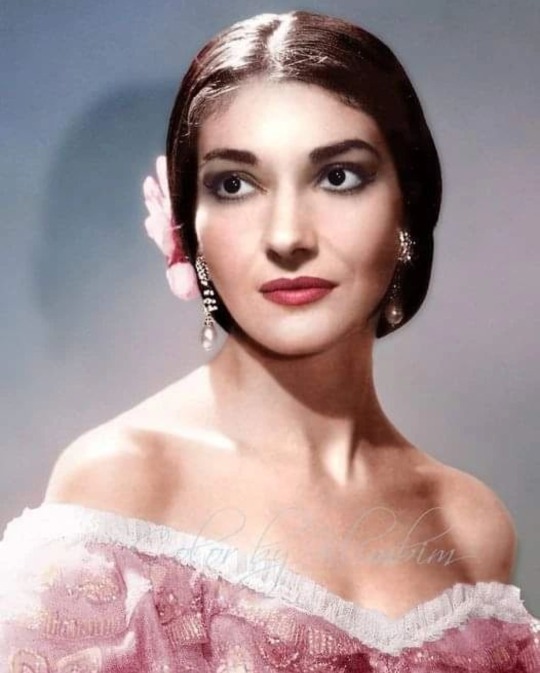
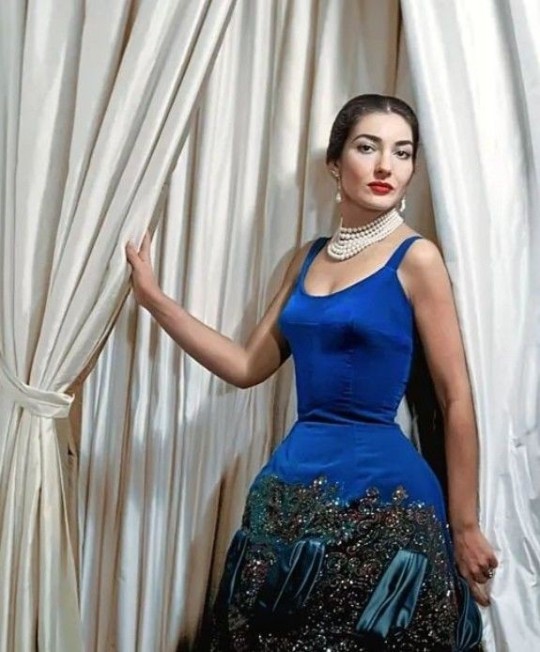
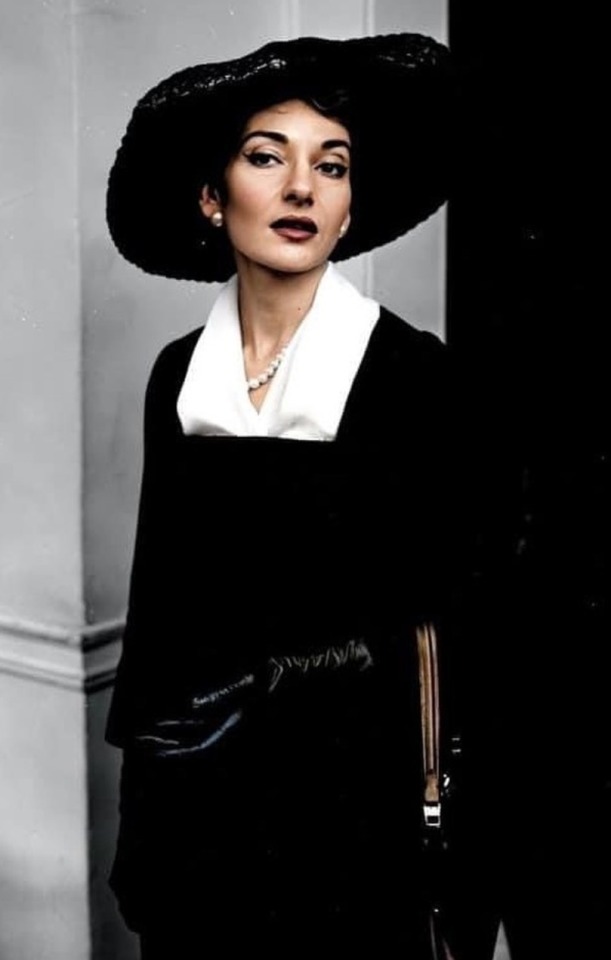
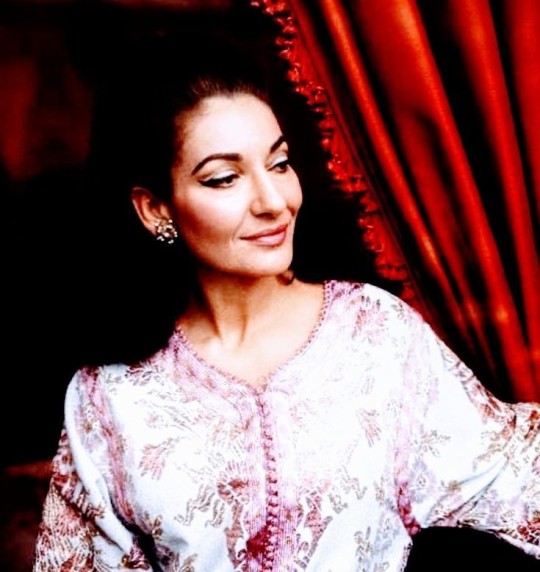
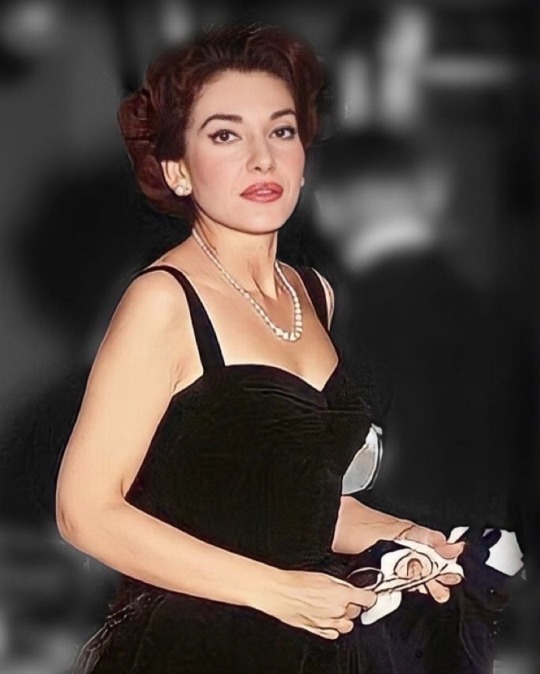
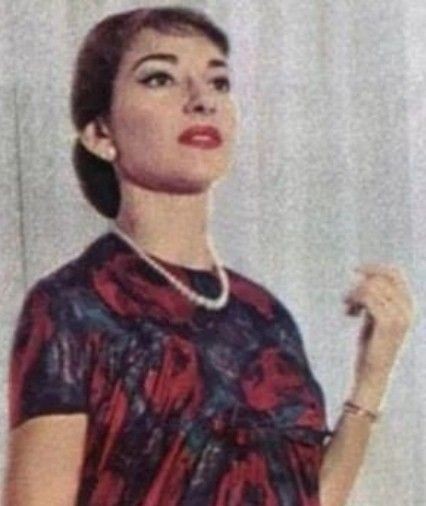
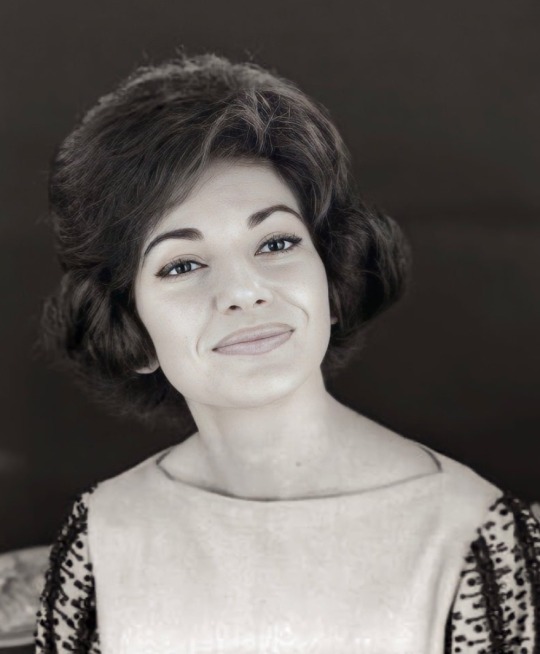
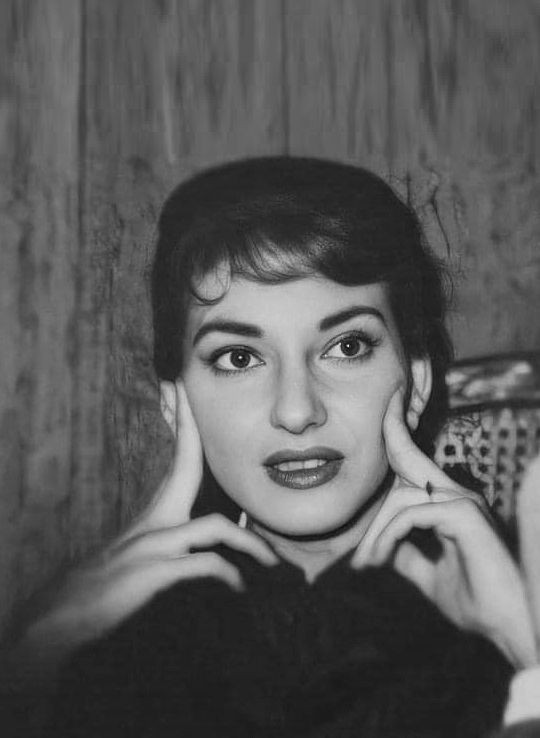
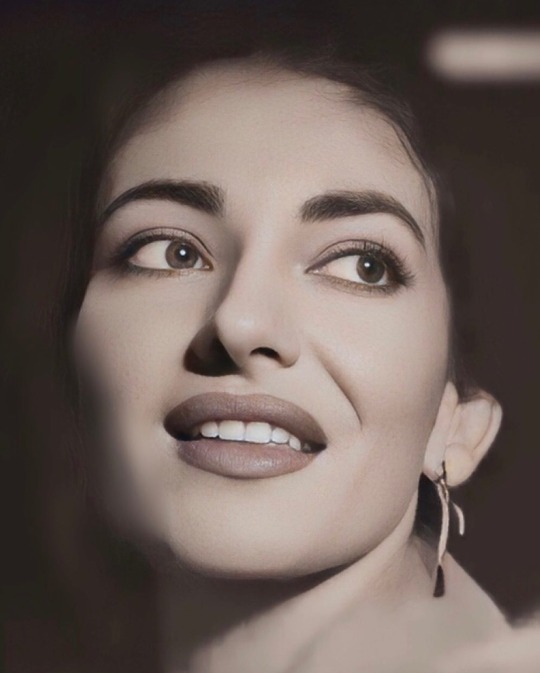
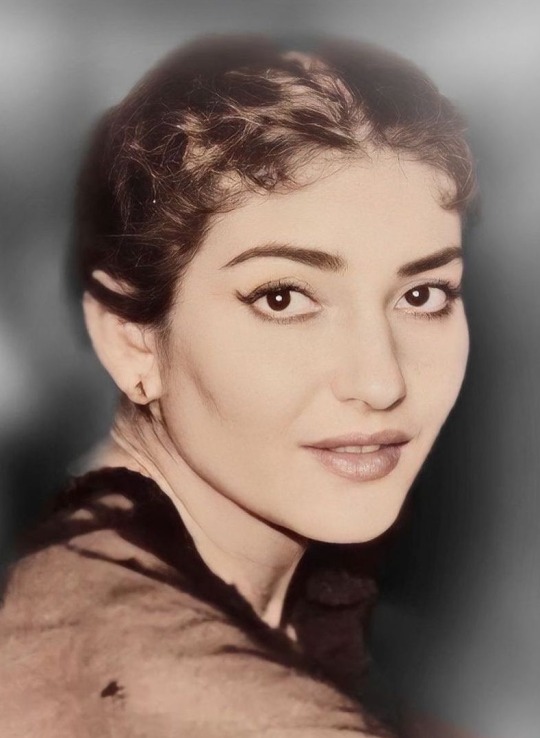
MARÍA CALLAS
Color by Kimblim (Imm 1 & 2)
Immages 7,8,9 & 10 by hst.mc on Instagram
#maría callas#callas 23#maria callas glamour#maria callas ellegant#maria callas rarities#giuseppe verdi#la traviata
5 notes
·
View notes
Text
“Romeo and Juliet” director Franco Zeffirelli dies at 96
Italian director Franco Zeffirelli, who delighted audiences around the world with his romantic vision and often extravagant productions, most famously captured in his cinematic “Romeo and Juliet,” has died in Rome at 96.
While Zeffirelli was most popularly known for his films, his name was also inextricably linked to the theater and opera. Showing great flexibility, he produced classics for the world’s most famous opera houses, from Milan’s venerable La Scala to the Metropolitan in New York, and plays for London and Italian stages.
Zeffirelli’s son Luciano said his father died at home on Saturday.
“He had suffered for a while, but he left in a peaceful way,” he said.
Zeffirelli made it his mission to make culture accessible to the masses, often seeking inspiration in Shakespeare and other literary greats for his films, and producing operas aimed at TV audiences.
Claiming no favorites, Zeffirelli once likened himself to a sultan with a harem of three: film, theater and opera.
“I am not a film director. I am a director who uses different instruments to express his dreams and his stories – to make people dream,” Zeffirelli told The Associated Press in a 2006 interview.
From his out-of-wedlock birth on the outskirts of Florence on Feb. 12, 1923, Zeffirelli rose to be one of Italy’s most prolific directors, working with such opera greats as Luciano Pavarotti, Placido Domingo and his beloved Maria Callas, as well Hollywood stars including Elizabeth Taylor, Mel Gibson, Cher and Judi Dench.
Throughout his career, Zeffirelli took risks — and his audacity paid off at the box office. His screen success in America was a rarity among Italian filmmakers, and he prided himself on knowing the tastes of modern moviegoers.
He was one of the few Italian directors close to the Vatican, and the church turned to Zeffirelli’s theatrical touch for live telecasts of the 1978 papal installation and the 1983 Holy Year opening ceremonies in St. Peter’s Basilica. Former Italian Premier Silvio Berlusconi also tapped him to direct a few high-profile events.
But Zeffirelli was best known outside Italy for his colorful, softly-focused romantic films. His 1968 “Romeo and Juliet” brought Shakespeare”s story to a new and appreciative generation, and his “Brother Sun, Sister Moon,” told the life of St. Francis in parables involving modern and 13th-century youth.
“Romeo and Juliet” set box-office records in the United States, though it was made with two unknown actors, Leonard Whiting and Olivia Hussey. The film, which cost $1.5 million, grossed $52 million and became the most successful Shakespearian movie ever.
In the 1970s, Zeffirelli’s focus shifted from the romantic to the spiritual. His 1977 made-for-television “Life of Jesus” became an instant classic with its portrayal of a Christ who seemed authentic and relevant. Shown around the world, the film earned more than $300 million.
Where Zeffirelli worked, however, controversy was never far away. In 1978, he threatened to leave Italy for good because of harsh attacks against him and his art by leftist groups in his country, who saw Zeffirelli as an exponent of Hollywood.
On the other hand, piqued by American criticism of his 1981 movie “Endless Love,” starring Brooke Shields, Zeffirelli said he might never make another film in the U.S. The movie, as he predicted, was a box office success.
Zeffirelli wrote about the then-scandalous circumstances of his birth in his 2006 autobiography, recounting how his mother attended her husband’s funeral pregnant with another man’s child. Unable to give the baby either her or his father’s names, she intended to name him Zeffiretti, after an aria in Mozart’s “Cosi fan Tutti,” but a typographical error made it Zeffirelli, making him “the only person in the world with Zeffirelli as a name, thanks to my mother’s folly.”
His mother died of tuberculosis when he was 6, and Zeffirelli went to live with his father’s cousin, whom he affectionately called Zia (Aunt) Lide.
It was during this period of his childhood, living in Zia Lide’s house with weekly visits from his father, that Zeffirelli developed passions that would shape his life. The first was for opera, after seeing Wagner’s “Walkuere” at age 8 or 9 in Florence. The second was a love of English culture and literature, after his father started him on thrice weekly English lessons with a British expatriate living in Florence.
His experiences with the British expatriate community under fascism, and their staunch disbelief that they would be victimized by Benito Mussolini’s regime, were at the heart of the semi-autobiographical 1991 film “Tea with Mussolini.”
He remained ever an Anglophile, and was particularly proud when Britain conferred on him an honorary knighthood in 2004 — the only Italian citizen to have received the honor.
As a youth, Zeffirelli served with the partisans during World War II. He later acted as an interpreter for British troops.
The lifelong bachelor turned from architecture to acting at the age of 20 when he joined an experimental troupe in his native city.
After a short-lived acting career, Zeffirelli worked with Luchino Visconti’s theatrical company in Rome, where he showed a flair for dramatic staging techniques in “A Streetcar Named Desire” and “Troilus and Cressida.” He later served as assistant director under Italian film masters Michelangelo Antonioni and Vittorio De Sica.
In 1950, he began a long and fruitful association with lyric theater, working as a director, set designer and costumist, and bringing new life to works by his personal favorites — Mozart, Rossini, Donizetti and Verdi.
Over the next decade, he staged dozens of operas, romantic melodramas and contemporary works in Italian and other European theaters, eventually earning a reputation as one of the world’s best directors of musical theater.
Both La Scala and New York’s Metropolitan Opera later played host to Zeffirelli’s classic staging of “La Boheme,” which was shown nationally on American television in 1982.
Zeffirelli returned to prose theater in 1961 with an innovative interpretation of “Romeo and Juliet” at London’s Old Vic. British critics immediately termed it “revolutionary,” and the director used it as the basis of frequent later productions and the 1968 film.
His first film effort in 1958, a comedy he wrote called “Camping,” had limited success. But eight years later, he directed Elizabeth Taylor and Richard Burton in Shakespeare’s “The Taming of the Shrew,” and made his distinctive mark on world cinema.
When Zeffirelli decided to do “La Traviata” on film, he had already worked his stage version of the opera into a classic, performed at Milan’s La Scala with soprano Maria Callas. He had been planning the film since 1950, he said.
“In the last 30 years, I’ve done everything a lyric theater artist can do,” Zeffirelli wrote in an article for Italy’s Corriere della Sera as the film was released in 1983. “This work is the one that crowns all my hopes and gratifies all my ambitions.”
The film, with Teresa Stratas and Placido Domingo in the lead roles, found near-unanimous critical acclaim on both sides of the Atlantic — a rarity for Zeffirelli — and received Oscar nominations for costuming, scenography and artistic direction.
Zeffirelli worked on a new staging of La Traviata as his last project, which will open the 2019 Opera Festival on June 21 at the Verona Arena. “We’ll pay him a final tribute with one of his most loved operas,” said artistic director Cecilia Gasdia. “He’ll be with us.”
Zeffirelli often turned his talents toward his native city. In 1983, he wrote a historical portrait of Florence during the 15th and 16th centuries, what he called the “political utopia.” During the disastrous 1966 Florence floods, Zeffirelli produced a well-received documentary on the damage done to the city and its art.
“I feel more like a Florentine than an Italian,” Zeffirelli once said. “A citizen of a Florence that was once the capital of Western civilization.”
Accused by some of heavy-handedness in his staging techniques, Zeffirelli fought frequent verbal battles with others in Italian theater.
“Zeffirelli doesn’t realize that an empty stage can be more dramatic than a stage full of junk,” Carmelo Bene, an avant-garde Italian director and actor and frequent Zeffirelli critic, once said.
It was a criticism that some reserved for his lavish production of “Aida” to open La Scala’s 2006-7 season — his first return to the Milan opera house in a dozen years and the fifth “Aida” of his career. The production was a popular success, but may be remembered more for the turbulent exit of the lead tenor, Roberto Alagna, after being booed from the loggia.
“I’m 83 and I’ve really been working like mad since I was a kid. I’ve done everything, but I never really feel that I have said everything I have to say,” Zeffirelli told The Associated Press shortly before the opening of “Aida.”
Zeffirelli had trouble with his balance after contracting a life-threatening infection during hip surgery in 1999, but didn’t let that slow him down. “I always have to cling on this or that to walk … but the mind is absolutely intact,” he said in the AP interview.
———
Giada Zampano contributed from Rome.
Sahred From Source link Entertainment
from WordPress http://bit.ly/2MR1zSB
via IFTTT
0 notes
Text
Riccardo Chailly, photo by Brescia e Amisano, 2017
A pleasing new season at La Scala seems to tick all the right boxes, with half the programming dedicated to the Italian repertoire, some rarities, important international operas and a world premiere. The season will also mark the 40th Anniversary of Riccardo Chailly’s collaboration with the theatre, and the 95th birthday of Franco Zeffirelli.
Anna Netrebko, photo by Ruven Afanador
The 2017-2018 Season kicks off with Andrea Chénier on the traditional date, Milan’s Saint’s Day, 7 December. Chailly will conduct Anna Netrebko, who will be making her debut in the role of Maddalena di Coigny, alongside her husband Yusif Eyvazov who is already at work with Chailly on preparing the title role. Luca Salsi, Annalisa Stroppa and Mariana Pentcheva complete the cast. Long-time La Scala collaborator Margherita Palli will design the sets and i twill be directed by Mario Martone.
Federico Tiezzi’s successful production of Simon Boccanegra will be back with Leo Nucci, just a couple of weeks before his 76th birthday. Krassimira Stoyanova, after her phenomenally successful recital earlier this year, will sing Amelia, and Myung-Whun Chung will conduct.
John Fulljames’s Royal Opera House production of Orphée et Eurydice, again with the Hofesh Shechter Dance Company and Juan Diego Flórez. At La Scala, Christiane Karg will sing Eurydice with Michele Mariotti in the pit.
Chailly will conduct Don Pasquale. Davide Livermore’s new production will see Ambrogio Maestri working with Chailly for the first time, and Norina will be sung by Rosa Feola, with René Barbera (Ernesto) and Mattia Olivieri (Malatesta).
Another new production follows with Francesca da Rimini which hasn’t been seen at La Scala since 1959, with Magda Olivero and Mario del Monaco. David Pountney will direct and Fabio Luisi returns to La Scala to conduct. Maria José Siri, after her success singing Butterfly to open the current season, will be Francesca with Roberto Aronica as Paolo.
Lila De Nobili’s sumptuous designs for Aida will return to mark Zeffirelli’s 95th birthday. His classic and popular production will feature Stoyanova, Fabio Sartori who will alternate with Marcelo Álvarez, and Violeta Urmana. 87-year-old Nello Santi will conduct.
Aida, photo by Brescia e Amisano
Schubert’s Fierrabras has never been performed at La Scala and Peter Stein’s Salzburg Festival production will see Daniel Harding conduct a cast which includes Anett Fritsch, Dorothea Röschmann, Markus Werba and Bernard Richter.
Deborah Warner’s Fidelio, which was Daniel Barenboim’s last season-opener before leaving La Scala, in 2014, returns with Simone Schneider as Leonore, Stuart Skelton as Florestan and Don Pizarro will be sung by Luca Pisaroni.
Sonia Yoncheva
At La Scala, on 17 October 1827, Bellini watched over the world premiere of his opera Il pirata. It hasn’t been performed at the theatre for 60 years, since Maria Callas gave her legendary performances. Now Sonya Yoncheva, Covent Garden’s recent Norma, bravely takes up the role. Christof Loy’s new production will be conducted by Riccardo Frizza. Piero Pretti and Nicola Alaimo are also in the cast.
Cherubini’s last opera, Alì Babà e i quaranta ladroni (Ali Baba and the Forty Thieves) will receive a staging from Liliana Cavani who will be working with students from La Scala’s prestigious vocal academy from January before the opera opens in September.
A new production by Sven-Eric Bechtolf of Verdi’s Ernani will be conducted by Ádám Fischer. A strong cast features Francesco Meli, Ailyn Pérez, Simone Piazzola and Ildar Abdrazakov.
Diego Fasolis makes a return to La Scala to conduct the orchestra on period instruments for Mozrt’s La finta giardiniera. It is the Glyndebourne Festival production by Frederic Wake-Walker. Many of the cast are currently singing in the current Don Giovanni revival: Kresimir Spicer, Hanna-Elisabeth Müller, Anett Fritsch, Bernard Richter, Lucia Cirillo, Giulia Semenzato, and Mattia Olivieri.
Patrice Chéreau’s last opera production, Strauss’s Elektra, was directed when he was already ill. Christoph von Dohnányi conducts this revival, and Ricarda Merbeth, Waltraud Meier, and Michael Volle are among the cast.
The season closes with the first opera written by Rumanian composer, György Kurtág. Fin de partie is based on the Samuel Beckett play. Kurtág will be 92 when it opens in November 2018. The cast are already working on the fiendishly difficult score. Frode Olsen, Leigh Melrose, Hilary Summers and Leonardo Cortellazzi are the brave but fortunate cast. Markus Stenz will conduct and the production will be by Pierre Audi.
The Recital Series features Michele Pertusi, Sonya Yoncheva, Diana Damrau, Anna Caterina Antonacci, Olga Peretyatko, Ildar Abdrazakov, and Michael Volle.
Fierrabras c Salzburger Festspiele ph Monika Rittershaus
OPERA SEASON 2017 – 2018
3 December: Preview for Young People
7, 10, 13, 16, 19, 22 December 2017; 2, 5 January 2018
Umberto Giordano
Andrea Chénier
Conductor Riccardo Chailly
Director Mario Martone
Sets Margherita Palli
Costumes Ursula Patzak
Lighting Pasquale Mari
Yusif Eyvazov, Anna Netrebko, Luca Salsi, Annalisa Stroppa, Mariana Pentcheva
NEW PRODUCTION
Eva Mei
19, 21, 23, 28, 31 January; 2, 4, 11 February 2018
Johann Strauss
Die Fledermaus
Conductor Zubin Mehta
Director Cornelius Obonya
Co-director Carolin Pienkos
Sets and Costumes Heike Scheele
Choreography Heinz Spoerli
Video Alex Scherpink
Peter Sonn, Eva Mei, Markus Werba, Michael Kraus, Daniela Fally, Elena Maximova, Giorgio Berrugi, Kresimir Spicer, Nino Frassica
NEW PRODUCTION
8, 10, 13, 16, 20, 22 February; 1, 4 March 2018
Giuseppe Verdi
Simon Boccanegra
Conductor Myung-Whun Chung
Director Federico Tiezzi
Sets Pier Paolo Bisleri
Costumes Giovanna Buzzi
Lighting Marco Filibeck
Leo Nucci, Krassimira Stoyanova, Fabio Sartori, Dmitry Belosselskiy, Dalibor Jenis
Co-production with Staatsoper Unter den Linden di Berlino
24, 28 febbraio; 3, 6, 11, 14, 17 marzo 2018
Christoph Willibald Gluck
Orphée et Eurydice
Conductor Michele Mariotti
Director John Fulljames
Choreography Hofesh Shechter
Sets and Costumes Conor Murphy
Lighting Lee Curran
Juan Diego Flórez, Christiane Karg, Fatma Said
Hofesh Shechter Dance Company
Royal Opera House production
Riccardo Chailly, photo by Brescia e Amisano 2017
3, 6, 11, 14, 17, 19, 24, 28 April; 4 May 2018
Gaetano Donizetti
Don Pasquale
Conductor Riccardo Chailly
Director Davide Livermore
Sets Davide Livermore and Giò Forma
Costumes Gianluca Falaschi
Ambrogio Maestri, Rosa Feola, René Barbera, Mattia Olivieri
NEW PRODUCTION
15, 18, 21, 26, 29 April; 2, 6, 10, 13 May 2018
Riccardo Zandonai
Francesca da Rimini
Conductor Fabio Luisi
Director David Pountney
Sets Leslie Travers
Costumes Marie-Jeanne Lecca
Maria José Siri, Roberto Aronica, Gabriele Viviani, Luciano Ganci
NEW PRODUCTION
Franco Zeffirelli, photo by Andrea Tamoni
8, 12, 15, 18, 27, 31 May; 3 June 2018
Giuseppe Verdi
Aida
In occasion of Franco Zeffirelli’s 95th birthday
Conductor Nello Santi
Director Franco Zeffirelli
Sets and Costumes Lila De Nobili
Krassimira Stoyanova, Fabio Sartori/ Marcelo Álvarez, Violeta Urmana, George Gagnidze, Vitalij Kowaljow, Carlo Colombara, Céline Mellon
5, 9, 12, 15, 19, 27, 30 June 2018
Franz Schubert
Fierrabras
Conductor Daniel Harding
Director Peter Stein
Sets Ferdinand Wögerbauer
Costumes Anna Maria Heinreich
Lighting Joachim Bart
Anett Fritsch, Dorothea Röschmann, Marie-Claude Chappuis, Bernard Richter, Tomasz Konieczny, Markus Werba, Peter Sonn
Salzburg Festival production
18, 21, 25, 28 June; 2, 5, 7 July 2018
Ludwig van Beethoven
Fidelio
Conductor Myung-Whun Chung
Director Deborah Warner
Sets and Costumes Chloé Obolensky
Lighting Jean Kalman
Stuart Skelton, Simone Schneider, Eva Liebau, Stephen Milling, Luca Pisaroni, Martin Gantner, Martin Piskorski
29 June; 3, 6, 9, 12, 14, 17, 19 July 2018
Vincenzo Bellini
Il pirata
Conductor Riccardo Frizza
Director Christof Loy
Sets Raimund Voigt
Costumes Ursula Renzenbrink
Lighting Olaf Winter
Sonya Yoncheva, Piero Pretti, Nicola Alaimo
NEW PRODUCTION
1, 3, 5, 9, 14, 17, 19, 21, 25, 27 September 2018
Progetto Accademia
Luigi Cherubini
Alì Babà e i quaranta ladroni
Conductor Paolo Carignani
Director Liliana Cavani
Sets Leila Fteita
Soloists from La Scala’s Academy
NEW PRODUCTION
29 September; 2, 6, 9, 13, 18, 22, 25 October 2018
Giuseppe Verdi
Ernani
Conductor Ádám Fischer
Director Sven-Eric Bechtolf
Sets and Costumes Julian Crouch
Francesco Meli, Ailyn Pérez, Simone Piazzola, Ildar Abdrazakov
NEW PRODUCTION
Diego Fasolis
8, 11, 16, 20, 23, 26, 29 October 2018
Wolfgang Amadeus Mozart
La finta giardiniera
Conductor Diego Fasolis
Director Frederic Wake-Walker
Sets and Costumes Antony McDonald
Lighting Lucy Carter
Kresimir Spicer, Hanna-Elisabeth Müller, Anett Fritsch, Bernard Richter, Lucia Cirillo, Giulia Semenzato, Mattia Olivieri
Glyndebourne Festival production
4, 7, 10, 14, 18, 23, 29 November 2018
Richard Strauss
Elektra
Conductor Christoph von Dohnányi
Director Patrice Chéreau
Sets Richard Peduzzi
Costumes Caroline de Vivaise
Ricarda Merbeth, Waltraud Meier, Regine Hangler, Michael Volle, Roberto Saccà
Co-production with Aix en Provence, Metropolitan Opera, Finnish National Opera, Staatsoper Under den Linden, Gran Teatre del Liceu
Kurtag Gyorgy, photo by Andrea Felvégi
15, 17, 20, 22, 24, 25 November 2018
György Kurtág
Fin de partie
Dramatised by György Kurtág from Samuel Beckett’s play
Conductor Markus Stenz
Director Pierre Audi
Sets and Costumes Christof Hetzer
Lighting Jean Kalman
Frode Olsen, Leigh Melrose, Hilary Summers, Leonardo Cortellazzi
WORLD PREMIERE
Co-production with De Nationale Opera, Amsterdam
Santi Nello
Leo Nucci Simon Boccanegra 611409BADG ph Brescia e Amisano
Stoyanova Krassimira, photo by Brescia e Amisano
Davide Livermore
Maria Josè Siri, photo by Victor Santiago
Florez Juan Diego, photo by Josef Gallauer, Decca
RECITAL SEASON 2017 – 2018
15 January 2018
Michele Pertusi, bass
Raffaele Cortesi, pianoforte
Mozart, Bellini, Verdi, Mascagni, Denza, Donaudy, Tosti
11 February 2018
Sonya Yoncheva, soprano
Mzia Bachtouridze, pianoforte
Puccini
12 March 2018
Diana Damrau, soprano
Helmut Deutsch, pianoforte
Wolf, Strauss
17 June 2018
Anna Caterina Antonacci, soprano
Donald Sulzen, pianoforte
Respighi, Poulenc, Hahn
1 July 2018
Olga Peretyatko, soprano
Giulio Zappa, pianoforte
Schubert, Liszt, Verdi, Glinka, Rachmaninov, Rimskij-Korsakov
5 November 2018
Ildar Abdrazakov, bass
Mzia Bachtouridze, pianoforte
Mozart, Schubert, Dunaevskij, Khrennikov, Ropartz, Kabalevskij
26 November 2018
Michael Volle, baritone
Andrea Jonasson, speaker
Helmut Deutsch, pianoforte
Johannes Brahms: Die schöne Magelone op. 33
Elektra, photo by Brescia e Amisano
La Scala, Milan: Opera and Recital Season 2017 – 2018 A pleasing new season at La Scala seems to tick all the right boxes, with half the programming dedicated to the Italian repertoire, some rarities, important international operas and a world premiere.
#Ambrogio Maestri#Anna Netrebko#Daniel Barenboim#Diana Damrau#Fabio Luisi#Franco Zeffirelli#Gaetano Donizetti#Giuseppe Verdi#Juan Diego Flórez#La Scala#Luca Pisaroni#magda olivero#Maria Callas#Mario Del Monaco#Metropolitan Opera#Riccardo Chailly#Richard Strauss#Royal Opera House#Salzburg Festival#Samuel Beckett#Wolfgang Amadeus Mozart#Zubin Mehta
0 notes